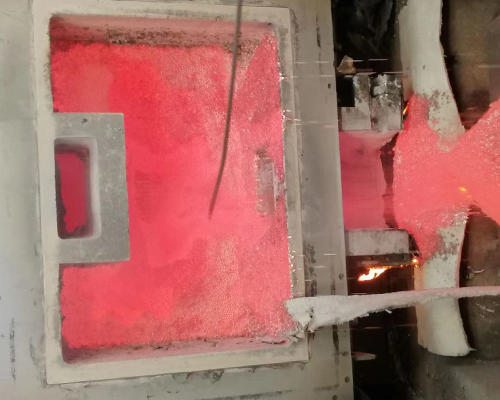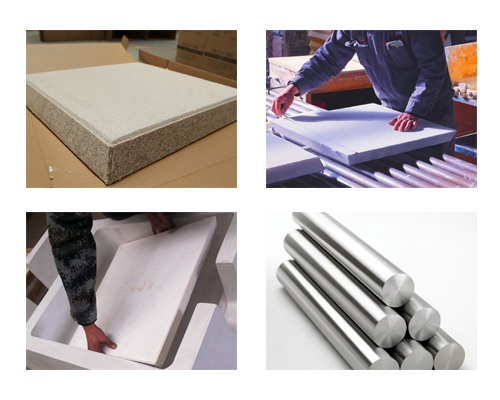The foam ceramic filter is widely used in aluminum foundries because of its convenient use, good filtering effect and low price. In developed countries, more than 50% of aluminum alloy melts are filtered by foam ceramic filter plates. The ceramic foam filter plate is generally a filter with a thickness of 50 mm and a length and width of 200-600 mm, and the porosity is as high as 0.8 to 0.9.
The foam ceramic foundries filter does not need a high pressure head during filtration, the initial size is 100-150mm, and only 2-10 mm after filtration. The ceramic foam filter plate is brittle and easily damaged. Generally, it is only used once, if it is used twice or more, melt insulation measures must be adopted. Generally, it is not allowed to use more than seven times, and a new filter plate must be replaced within 48 hours.
The deep bed filter is a foundry filtering device with a better filtering effect. It is bulky, and it takes time and effort to install and replace the filter media. It is only suitable for the production of large quantities of single alloys, so there are fewer manufacturers.

The corundum tube filter has high filtration efficiency and can effectively remove small non-metallic inclusions in the melt. It is suitable for the filtration of aluminum alloy melts such as forgings, can materials and double zero foils. However, corundum tube filtration is expensive and inconvenient to use. It is used more in Japan and less used in other parts of the world.
The tubular filter is equipped with several corundum tubes with an outer diameter of 100 mm, an inner diameter of 60 mm, and a length of 500-900 mm. The melt passes through the small and tortuous micro-pores of the ceramic tube. The impurities in the melt It is blocked, settled and the surface of the medium adsorbs impurities and filters out the impurity particles in the melt. The 20-mesh ceramic tube can filter out the inclusion particles above 5 um, and the 16-mesh tube can filter out the inclusion particles of 8-10 um.

